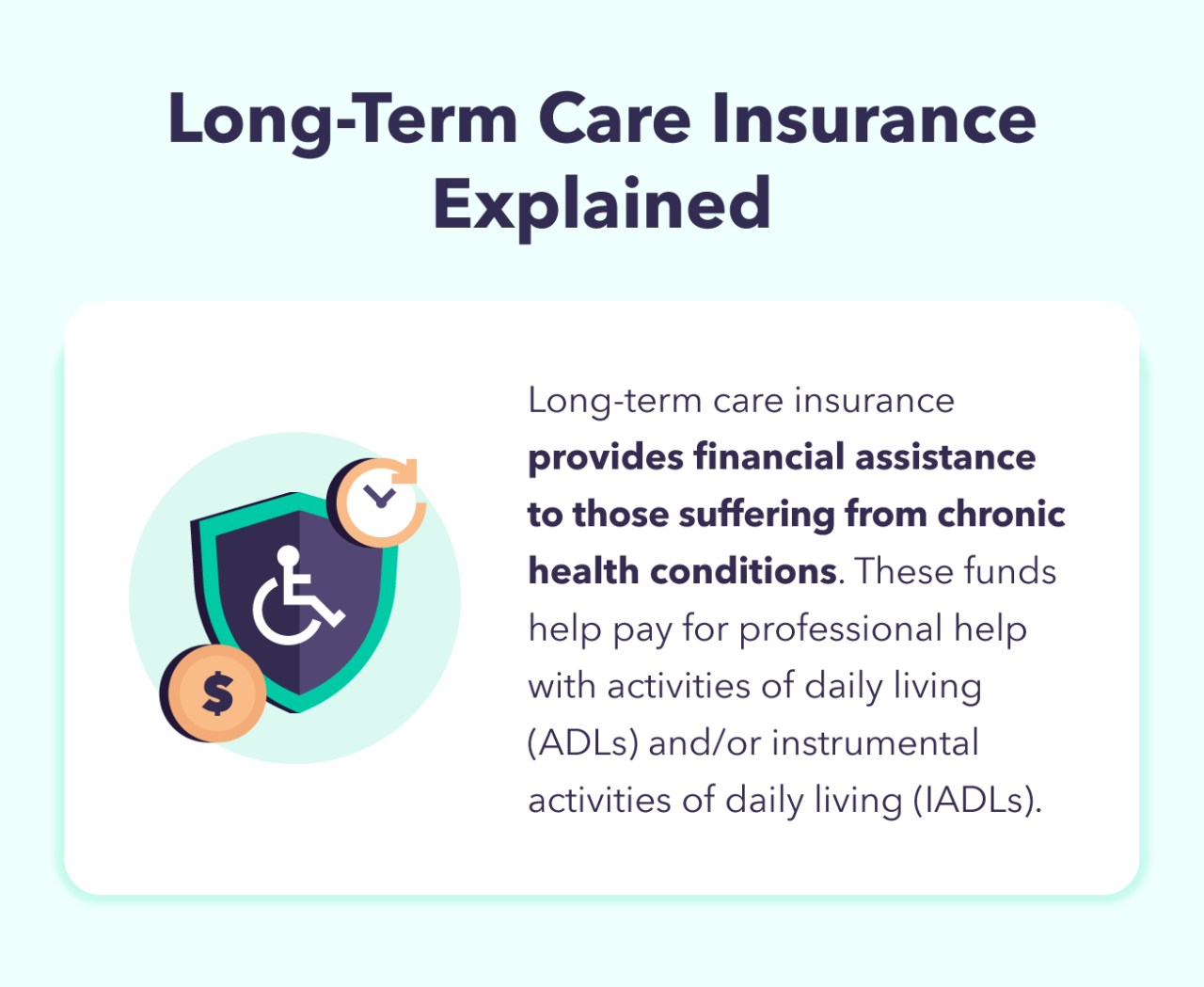Yo, check it – Long-term care insurance ain’t just some boring topic. It’s like your ticket to protecting your future and assets, homie. So buckle up and let’s dive into this world of financial security and peace of mind.
So, what’s the deal with Long-term care insurance? Let’s break it down real smooth for you.
What is Long-term Care Insurance?
Long-term care insurance is a type of insurance policy designed to cover the costs associated with long-term care services. It helps individuals pay for services not typically covered by health insurance, Medicare, or Medicaid.
Purpose of Long-term Care Insurance
Long-term care insurance provides financial protection for individuals who may need assistance with daily activities due to chronic illness, disability, or cognitive impairment. It helps cover the costs of services such as nursing home care, assisted living facilities, in-home care, and adult day care.
Types of Services Covered by Long-term Care Insurance
- Nursing Home Care: This includes room and board, nursing care, therapy services, and assistance with daily activities.
- Assisted Living Facilities: Coverage for housing, meals, personal care services, and medication management in a residential setting.
- In-Home Care: Services provided in the individual’s home, such as personal care, housekeeping, meal preparation, and medication reminders.
- Adult Day Care: Daytime programs offering social activities, meals, and supervision for individuals who need assistance during the day.
Importance of Long-term Care Insurance

Long-term care insurance is crucial for individuals to protect their assets and ensure they receive proper care in the event of a chronic illness or disability.
Statistics and Trends
- According to the U.S. Department of Health and Human Services, 70% of people turning 65 will need long-term care at some point in their lives.
- The cost of long-term care services continues to rise, making it essential to have insurance coverage to help offset these expenses.
- As the population ages, the demand for long-term care insurance is expected to increase significantly in the coming years.
Asset Protection
Long-term care insurance can safeguard one’s savings and assets from being depleted by exorbitant medical bills and long-term care costs. By having this insurance in place, individuals can ensure that their financial resources are preserved for their loved ones or other needs.
Eligibility and Cost
When it comes to long-term care insurance, eligibility and cost are important factors to consider. Not everyone may be eligible for this type of insurance, and the cost can vary depending on various factors.
Eligibility Criteria
- Individuals who are in good health when applying for long-term care insurance are more likely to be eligible.
- Age can also play a role in eligibility, as insurance companies may have age restrictions for applicants.
- Those with pre-existing medical conditions may find it more challenging to qualify for long-term care insurance.
Factors Influencing Cost
- Age: Younger individuals typically pay lower premiums compared to older individuals due to the lower risk of needing long-term care services.
- Health Status: Applicants in good health may pay lower premiums while those with existing health conditions may face higher costs.
- Coverage Amount: The more coverage you choose, the higher the premium is likely to be.
- Insurance Company: Different insurance providers may offer varying rates for long-term care insurance.
Comparison to Self-Funding
- Self-funding long-term care services can be expensive, especially if you require care for an extended period.
- Long-term care insurance can help mitigate the financial burden by providing coverage for these services.
- While the cost of long-term care insurance premiums may seem high initially, it can be more cost-effective than paying out of pocket for care services in the long run.
Coverage Options
Long-term care insurance offers various coverage options to cater to different needs and preferences. Having comprehensive coverage is essential to ensure financial security and access to quality care when needed. Let’s explore some of the coverage options available and their benefits.
In-Home Care Coverage
- Provides coverage for care services received at home, including assistance with daily activities like bathing, dressing, and meal preparation.
- Allows individuals to age in place and receive care in the comfort of their own homes.
- Beneficial for those who prefer to remain independent and maintain their lifestyle while receiving necessary care.
Facility Care Coverage
- Covers the cost of care in assisted living facilities, nursing homes, or other long-term care facilities.
- Ensures access to professional care services and medical assistance when individuals require a higher level of support.
- Provides peace of mind knowing that quality care is available in a facility setting if needed.
Hybrid Policies
- Combines long-term care insurance with life insurance or annuities to offer additional benefits.
- Allows policyholders to receive long-term care benefits while also providing a death benefit or investment component.
- Offers flexibility and versatility in coverage options to meet individual financial goals and needs.
